

Research Findings on Memory and Cognitive Impairment in ECT. Dr.
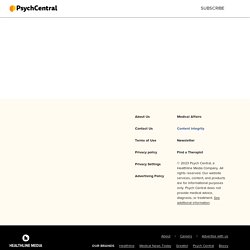
Peter Como presented to the U.S. Food and Drug Administration Neurological Devices Panel examining the reclassification of electroconvulsive therapy (ECT) devices on January 27, 2011. This presentation comes from the public record of the meeting. The FDA systematic review of the literature of cognitive adverse events [of ECT] included only randomized controlled trials as I mentioned.
However, we did examine data from crossover designs if analyzable pre-crossover data were available. The statistical comparisons that were examined included comparisons among various ECT treatment conditions, such as electrode placement, energy dose, frequency of treatment, waveform, and pulse. From this literature search, a total of 68 studies were identified which met these criteria.
This slide summarizes the findings of the published systematic reviews, meta-analyses, and practice guidelines. These summaries also suggest that factors other than the ECT treatment may impact cognitive function. Dr. Scientists already know how to 'erase' your painful memories... and add new ones. We all have things in our past that we'd like to forget - bad break-ups, traumatic experiences, loss.
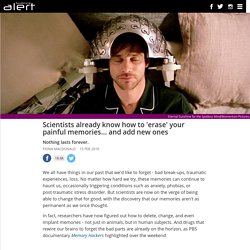
No matter how hard we try, these memories can continue to haunt us, occasionally triggering conditions such as anxiety, phobias, or post-traumatic stress disorder. But scientists are now on the verge of being able to change that for good, with the discovery that our memories aren't as permanent as we once thought. In fact, researchers have now figured out how to delete, change, and even implant memories - not just in animals, but in human subjects.
New mathematical model shows how our brains make complex decisions. 10 weird brain disorders that totally mess with your perception of reality. Imagine being able to feel everything another person is feeling - their pleasure and their pain.
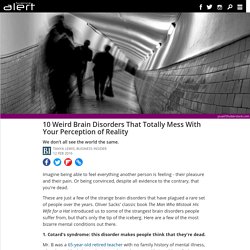
Or being convinced, despite all evidence to the contrary, that you're dead. These are just a few of the strange brain disorders that have plagued a rare set of people over the years. Oliver Sacks' classic book The Man Who Mistook His Wife for a Hat introduced us to some of the strangest brain disorders people suffer from, but that's only the tip of the iceberg. Here are a few of the most bizarre mental conditions out there. 1. Mr. This man suffered from a condition known as Cotard's syndrome (or Walking corpse syndrome), in which a patient thinks he or she is dead. This new mind-reading tech helps you learn to play instruments faster. A new brain-scanning system called BACh (Brain Automated Chorales) is teaching inexperienced piano players how to learn more quickly and effectively by figuring out how hard their brains are working and adjusting the difficulty accordingly.

After just 15 minutes of learning a couple of Bach chorales, volunteers strapped into the device played the new pieces significantly better than when they used traditional methods, and the team behind the technology says it can be applied to a range of different skills, including maths, reading, programming, and learning foreign languages. "We found that learners played with significantly increased accuracy and speed in the brain-based adaptive task compared to our control condition," the researchers from Tufts University report. Bilingual toddlers demonstrate greater cognitive flexibility, study finds. Speaking more than one language at home doesn't just expose young children to two sets of vocabularies – it could also confer hidden benefits to their cognitive control, according to a new study.
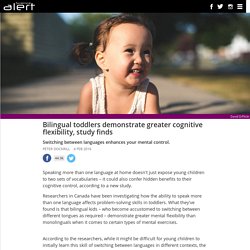
Researchers in Canada have been investigating how the ability to speak more than one language affects problem-solving skills in toddlers. Watching a memory form: Sea slug study reveals novel memory mechanism. Neuroscientists at Rosalind Franklin University of Medicine and Science have discovered that some neurons are joiners -- seemingly eager to link-up with networks in which learning is taking place.
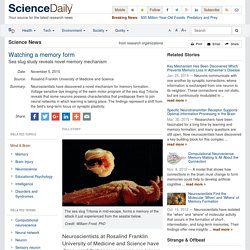
The findings, which will appear this week in the journal Current Biology, have implications for how brain networks can rapidly adjust to build memories. "In a prior study, we discovered neurons, whose participation in networks varies on a moment-to-moment basis, displaying a surprising ambivalence about their commitment to the network's function," said William Frost, PhD, professor and chair of the Chicago Medical School Department of Cell Biology and Anatomy.
New study reveals visual working memory may provide clues to autism's social struggles. Poor visual working memory can play an important role in the struggles experienced by autistic children, according to a new study conducted by Dr.
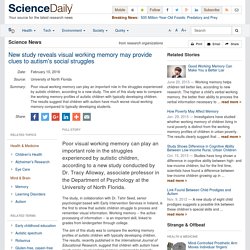
Tracy Alloway, associate professor in the Department of Psychology at the University of North Florida. The study, in collaboration with Dr. Tahir Seed, senior psychologist based with Early Intervention Services in Ireland, is the first to show that autistic children struggle to process and remember visual information. Working memory -- the active processing of information -- is an important skill, linked to grades from kindergarten through college. The aim of this study was to compare the working memory profiles of autistic children with typically developing children.
"This deficit can have important implications for how autistic children process their social environment. "This research suggests that visual working memory may play an important role in developing social skills in children with autism," said Alloway. Midnight munchies mangle memory: Eating at the wrong time impairs learning, memory. An occasional late-night raid on turkey leftovers might be harmless but new research with mice suggests that making a habit of it could alter brain physiology.
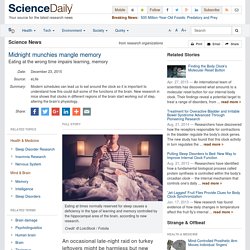
Eating at times normally reserved for sleep causes a deficiency in the type of learning and memory controlled by the hippocampal area of the brain, according to findings in the journal eLife. Researchers from the Semel Institute in the David Geffen School of Medicine at University of California, Los Angeles (UCLA) became interested in the cognitive effects of eating at inappropriate hours because it is already known to have an impact on metabolic health, for example leading to a pre-diabetic state.
"We have provided the first evidence that taking regular meals at the wrong time of day has far-reaching effects for learning and memory," says first author Dawn Loh from the UCLA Laboratory of Circadian and Sleep Medicine. The current study shows that some learned behaviours are more affected than others. Different memory resolutions map onto different brain locations. Neuroscientists from Radboud University's Donders Institute have shown that memories of the same events co-exist at different resolutions in the brain.
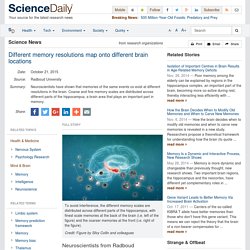
Coarse and fine memory scales are distributed across different parts of the hippocampus, a brain area that plays an important part in memory. Nature Neuroscience publishes the results on October 19. What is your memory style? Tndency to remember episodic details versus facts is reflected in intrinsic brain patterns. Why is it that some people have richly detailed recollection of past experiences (episodic memory), while others tend to remember just the facts without details (semantic memory)?
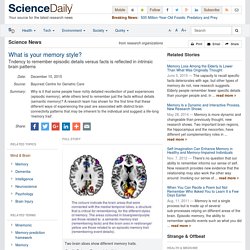
A research team from the Rotman Research Institute at Baycrest Health Sciences has shown for the first time that these different ways of experiencing the past are associated with distinct brain connectivity patterns that may be inherent to the individual and suggest a life-long 'memory trait'. The study was recently published online in the journal Cortex. "For decades, nearly all research on memory and brain function has treated people as the same, averaging across individuals," said lead investigator Dr. Signy Sheldon, now an assistant professor of Psychology at McGill University.
"Yet as we know from experience and from comparing our recollection to others, peoples' memory traits vary. The researchers focused on connections between the brain's medial temporal lobes and other brain regions. Scientists identify a memory suppressor that may play a role in autism. Discovered only in the 1990s, microRNAs are short molecules that work within virtually all cells. Typically, each one functions as a "dimmer switch" for the expression of one or more genes, regulating a wide variety of cellular processes, including learning and memory. In a new study published in the February 11, 2016 issue of the journal Cell Reports, scientists from the Florida campus of The Scripps Research Institute (TSRI), working in collaboration with scientists from the University of California, Irvine, show that one specific microRNA has strong links to a number of neuropsychiatric disorders, including autism spectrum disorder.